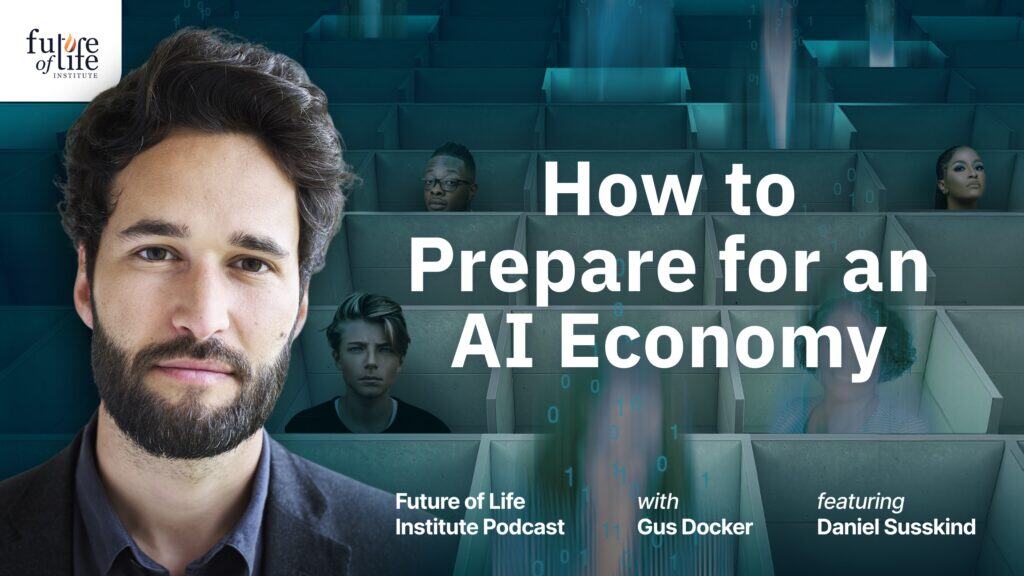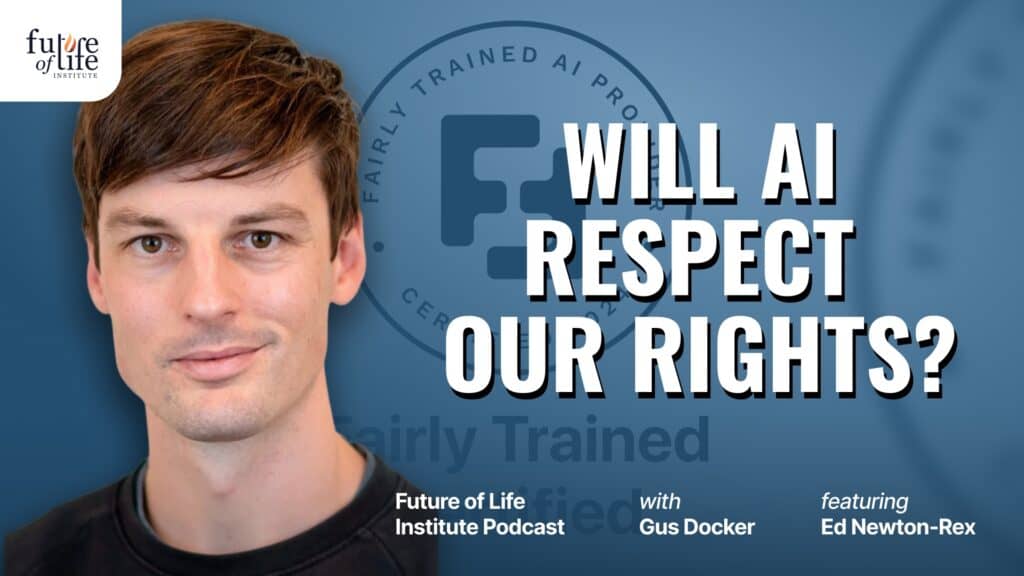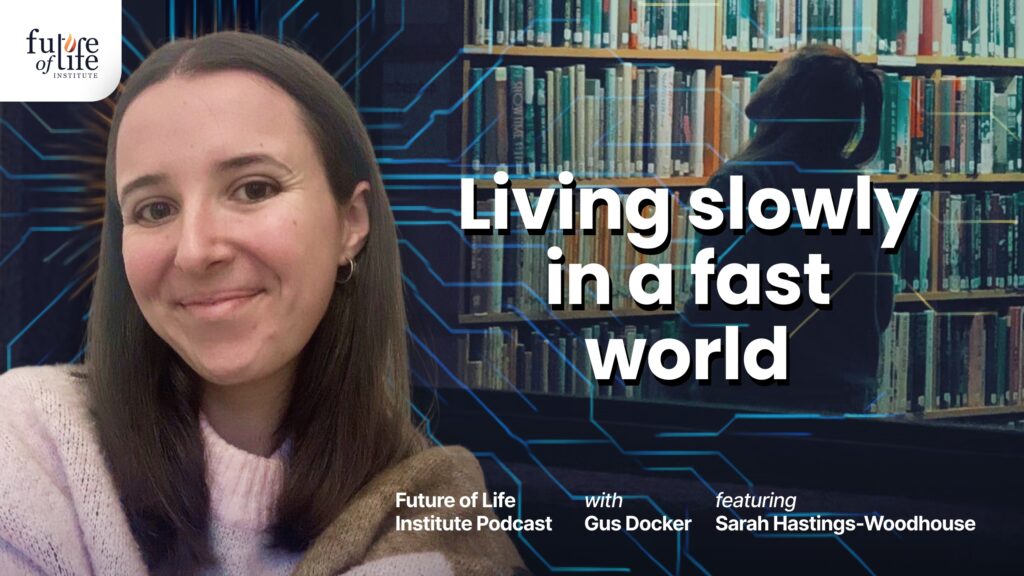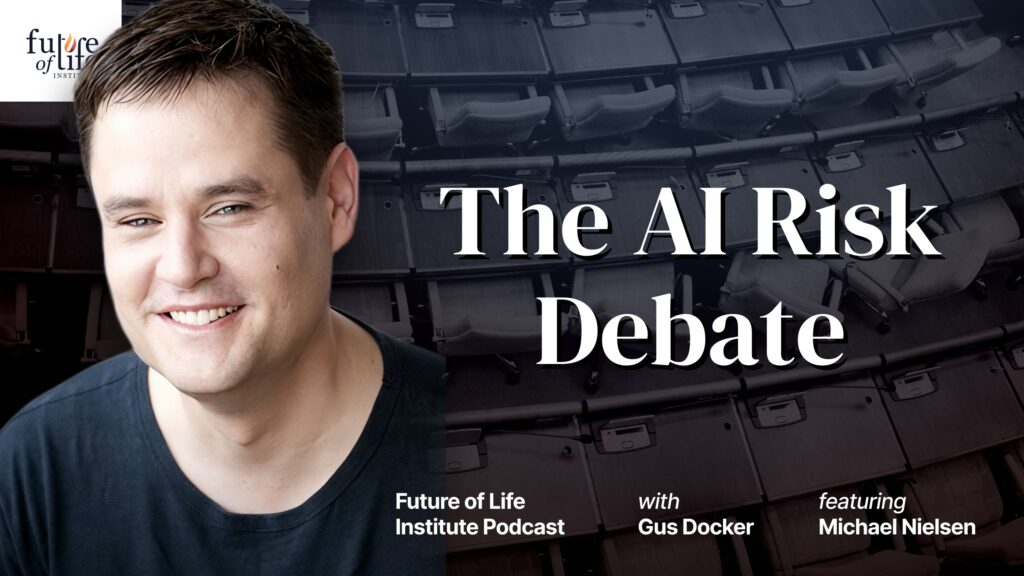
Our mission
Steering transformative technology towards benefitting life and away from extreme large-scale risks.
We believe that the way powerful technology is developed and used will be the most important factor in determining the prospects for the future of life. This is why we have made it our mission to ensure that technology continues to improve those prospects.
Recent updates
Happening now
FLI's President Max Tegmark and Director of Policy Mark Brakel participated in 'The Singapore Consensus on Global AI Safety Research Priorities'. The report sets an agenda for the most important AI safety research needed today, as determined by a gathering of 100+ top AI researchers and scientists. See the research priorities here, or read about it in WIRED.
Focus areas
The risks we focus on
We are currently concerned by three major risks. They all hinge on the development, use and governance of transformative technologies. We focus our efforts on guiding the impacts of these technologies.
Artificial Intelligence
From recommender algorithms to chatbots to self-driving cars, AI is changing our lives. As the impact of this technology grows, so will the risks.
Artificial Intelligence
Biotechnology
From the accidental release of engineered pathogens to the backfiring of a gene-editing experiment, the dangers from biotechnology are too great for us to proceed blindly.
Biotechnology
Nuclear Weapons
Almost eighty years after their introduction, the risks posed by nuclear weapons are as high as ever - and new research reveals that the impacts are even worse than previously reckoned.
Nuclear Weapons
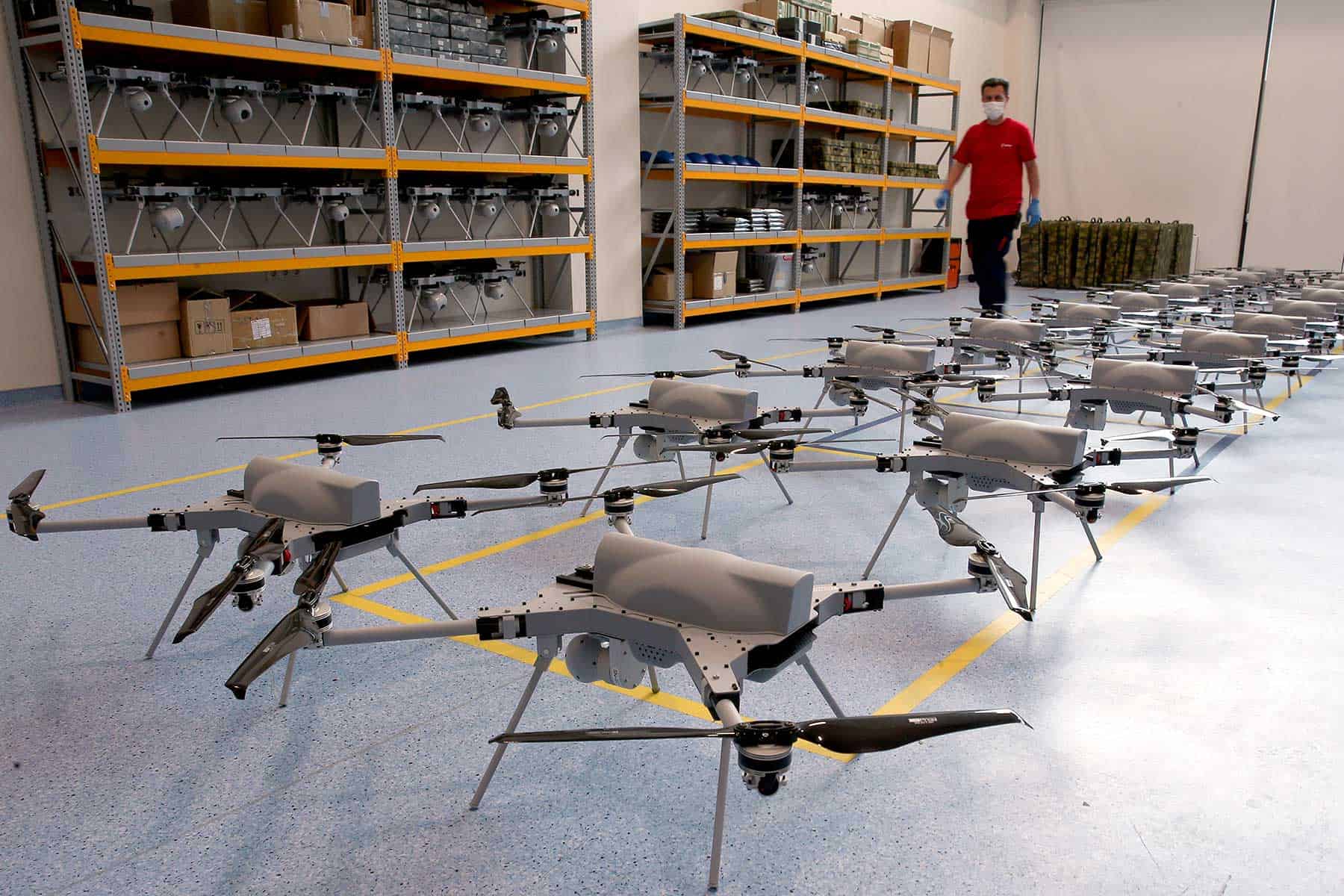
UAV Kargu autonomous drones at the campus of OSTIM Technopark in Ankara, Turkey - June 2020.
Our work
How we are addressing these issues
There are many potential levers of change for steering the development and use of transformative technologies. We target a range of these levers to increase our chances of success.
Policy and Research
We engage in policy advocacy and research across the United States, the European Union and around the world.
Our Policy and Research workOutreach
We produce educational materials aimed at informing public discourse, as well as encouraging people to get involved.
Our Outreach workGrantmaking
We provide grants to individuals and organisations working on projects that further our mission.
Our Grant ProgramsFutures
The Futures program aims to guide humanity towards the beneficial outcomes made possible by transformative technologies.
Our Futures Work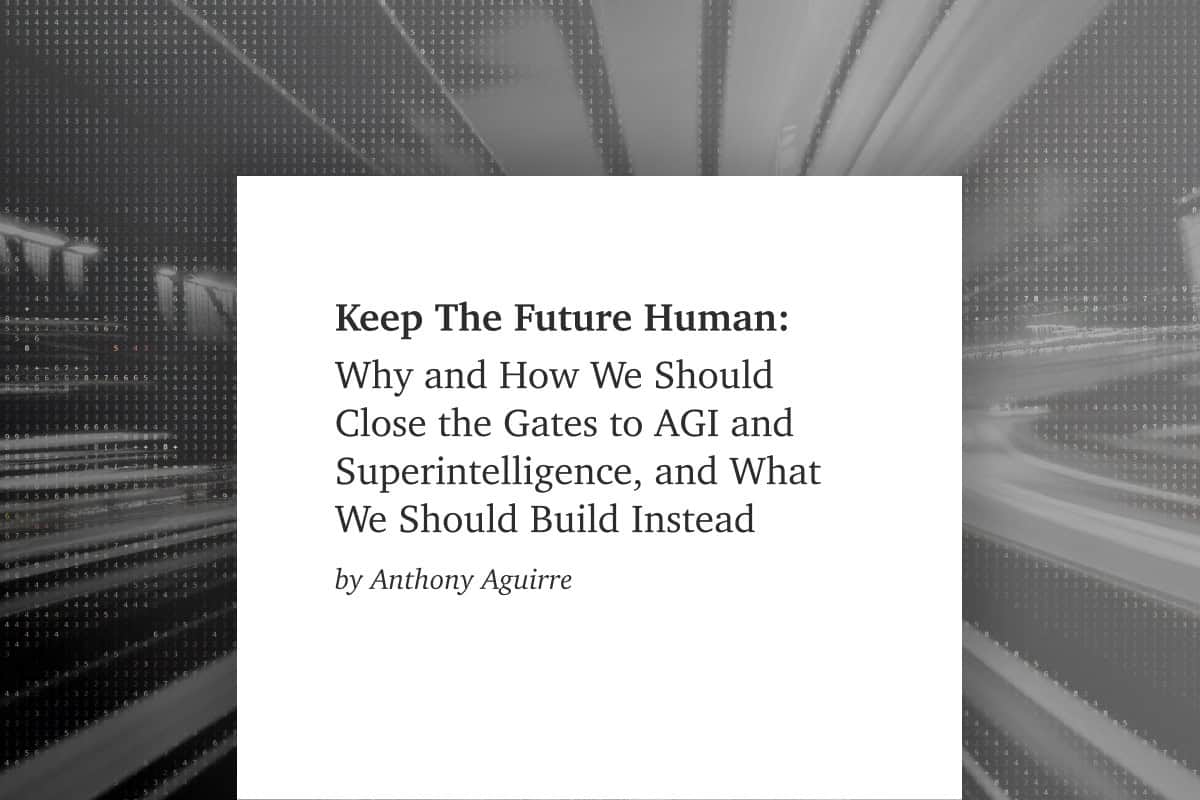
Spotlight
We must not build AI to replace humans.
A new essay by Anthony Aguirre, Executive Director of the Future of Life Institute
Humanity is on the brink of developing artificial general intelligence that exceeds our own. It's time to close the gates on AGI and superintelligence... before we lose control of our future.
Featured Projects
What we're working on
Read about some of our current featured projects:

Perspectives of Traditional Religions on Positive AI Futures
Most of the global population participates in a traditional religion. Yet the perspectives of these religions are largely absent from strategic AI discussions. This initiative aims to support religious groups to voice their faith-specific concerns and hopes for a world with AI, and work with them to resist the harms and realise the benefits.
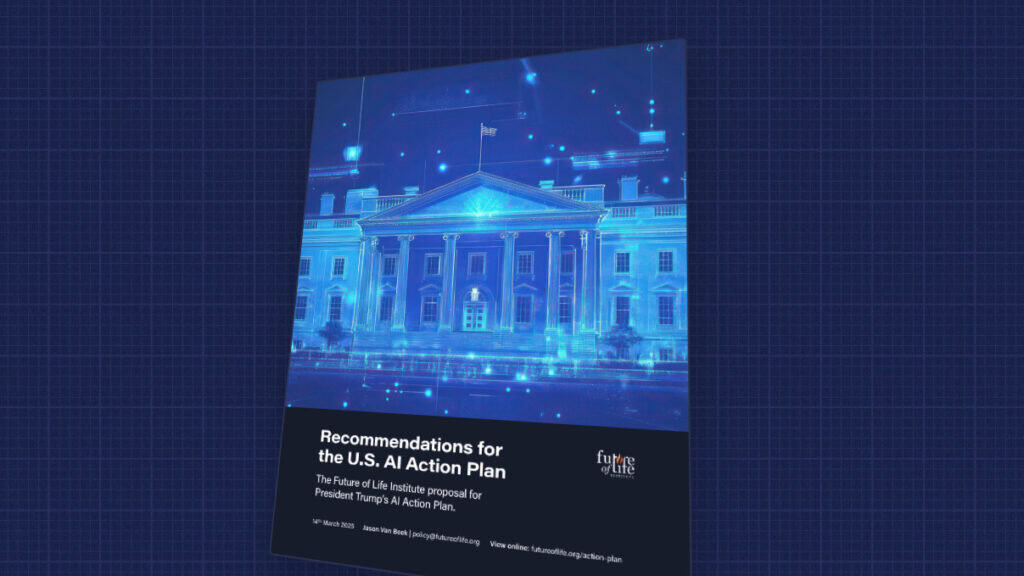
Recommendations for the U.S. AI Action Plan
The Future of Life Institute proposal for President Trump’s AI Action Plan. Our recommendations aim to protect the presidency from AI loss-of-control, promote the development of AI systems free from ideological or social agendas, protect American workers from job loss and replacement, and more.

Multistakeholder Engagement for Safe and Prosperous AI
FLI is launching new grants to educate and engage stakeholder groups, as well as the general public, in the movement for safe, secure and beneficial AI.

Digital Media Accelerator
The Digital Media Accelerator supports digital content from creators raising awareness and understanding about ongoing AI developments and issues.
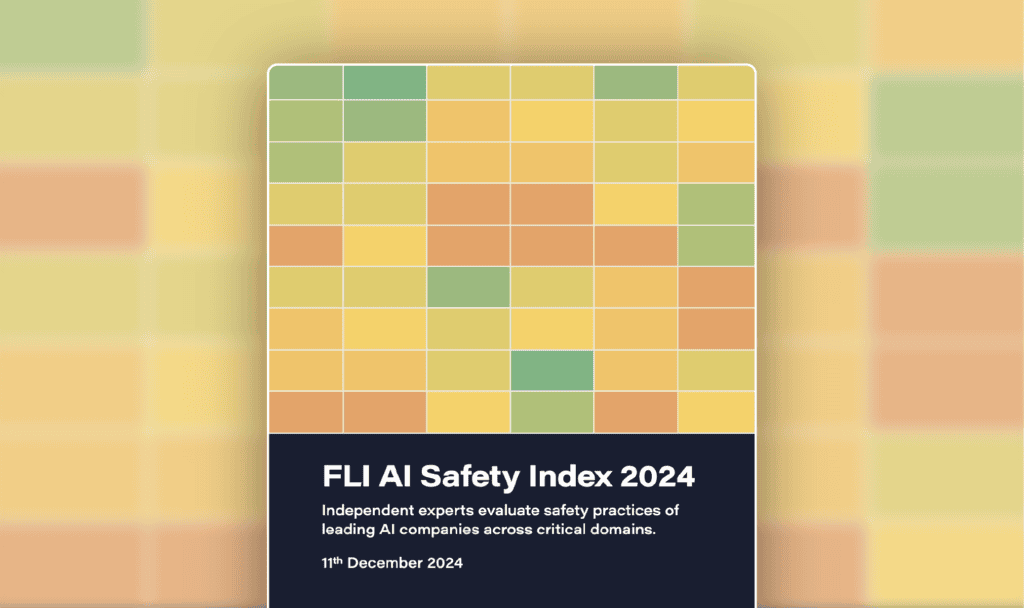
FLI AI Safety Index 2024
Seven AI and governance experts evaluate the safety practices of six leading general-purpose AI companies.

AI Convergence: Risks at the Intersection of AI and Nuclear, Biological and Cyber Threats
The dual-use nature of AI systems can amplify the dual-use nature of other technologies—this is known as AI convergence. We provide policy expertise to policymakers in the United States in three key convergence areas: biological, nuclear, and cyber.
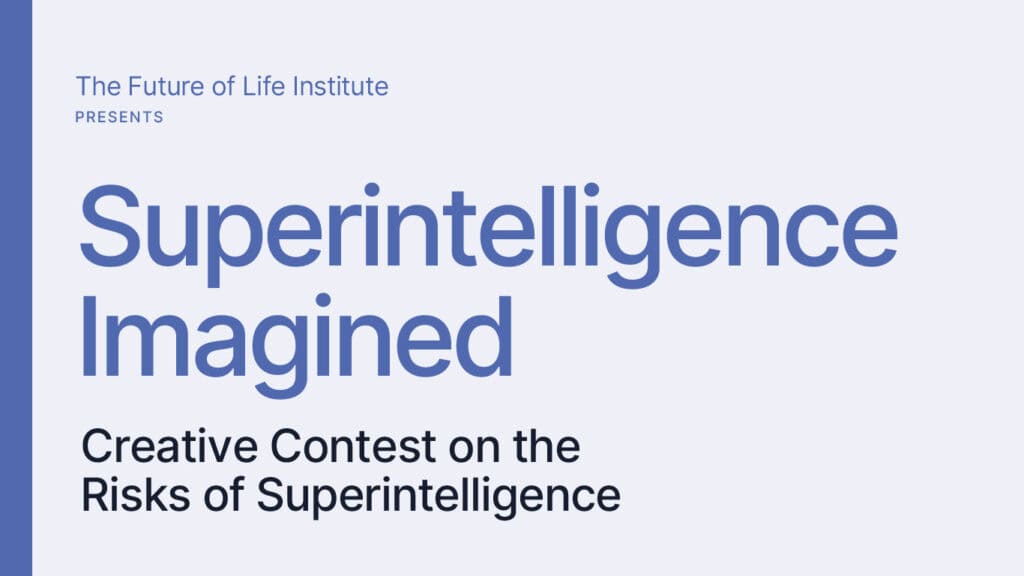
Superintelligence Imagined Creative Contest
A contest for the best creative educational materials on superintelligence, its associated risks, and the implications of this technology for our world. 5 prizes at $10,000 each.
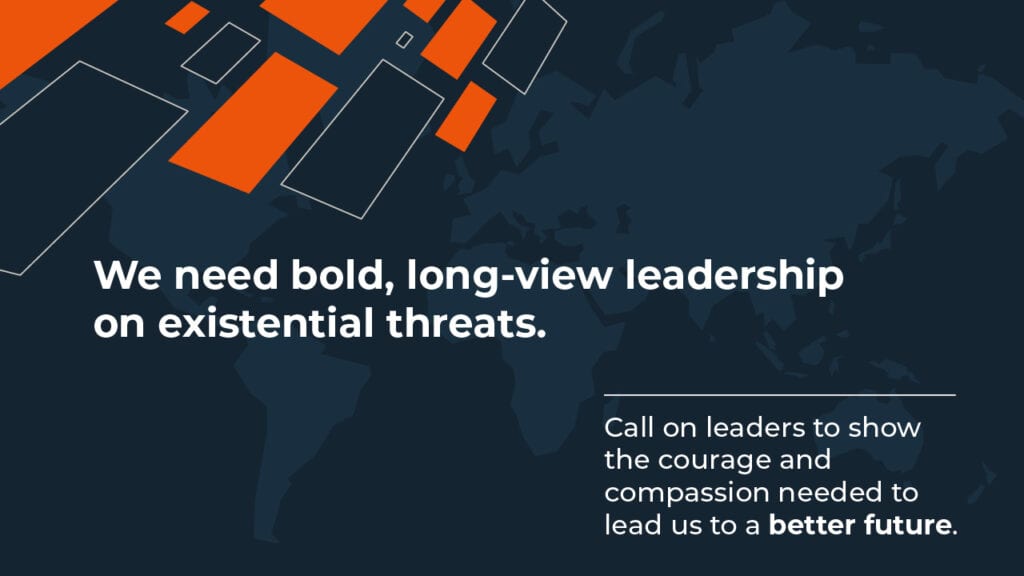
The Elders Letter on Existential Threats
The Elders, the Future of Life Institute and a diverse range of preeminent public figures are calling on world leaders to urgently address the ongoing harms and escalating risks of the climate crisis, pandemics, nuclear weapons, and ungoverned AI.

Implementing the European AI Act
Our key recommendations include broadening the Act’s scope to regulate general purpose systems and extending the definition of prohibited manipulation to include any type of manipulatory technique, and manipulation that causes societal harm.

Educating about Autonomous Weapons
Military AI applications are rapidly expanding. We develop educational materials about how certain narrow classes of AI-powered weapons can harm national security and destabilize civilization, notably weapons where kill decisions are fully delegated to algorithms.
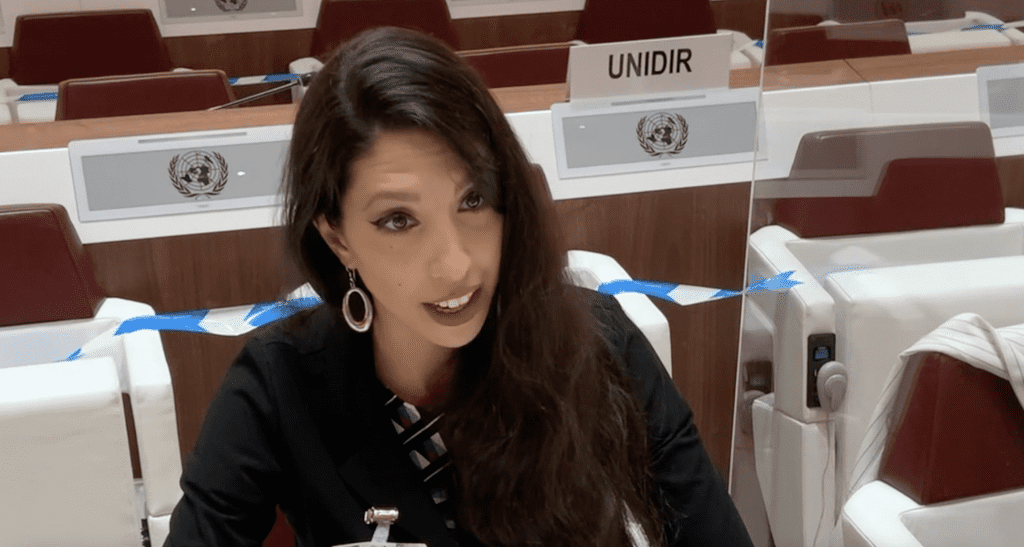
Global AI governance at the UN
Our involvement with the UN's work spans several years and initiatives, including the Roadmap for Digital Cooperation and the Global Digital Compact (GDC).
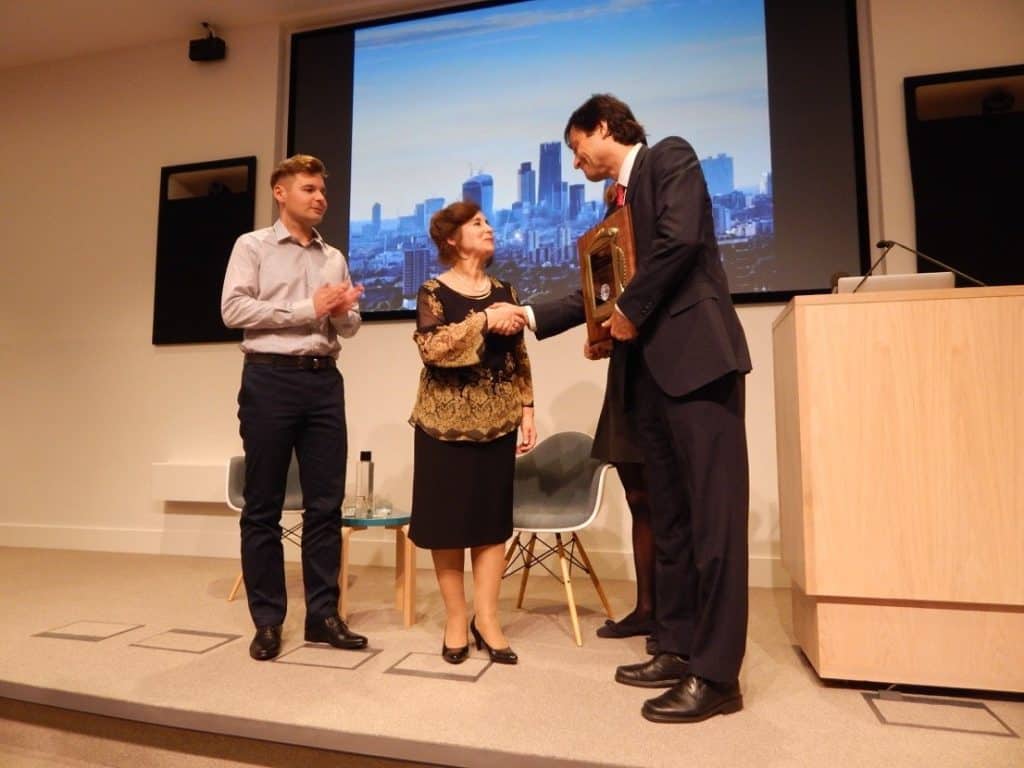
Future of Life Award
Every year, the Future of Life Award is given to one or more unsung heroes who have made a significant contribution to preserving the future of life.
View all projects
newsletter
Regular updates about the technologies shaping our world
Every month, we bring 41,000+ subscribers the latest news on how emerging technologies are transforming our world. It includes a summary of major developments in our cause areas, and key updates on the work we do. Subscribe to our newsletter to receive these highlights at the end of each month.
Future of Life Institute Newsletter: One Big Beautiful Bill…banning state AI laws?!
Plus: Updates on the EU AI Act Code of Practice; the Singapore Consensus; open letter from Evangelical leaders; and more.
Maggie Munro
31 May, 2025
Future of Life Institute Newsletter: Where are the safety teams?
Plus: Online course on worldbuilding for positive futures with AI; new publications about AI; our Digital Media Accelerator; and more.
Maggie Munro
1 May, 2025
Future of Life Institute Newsletter: Recommendations for the AI Action Plan
Plus: FLI Executive Director's new essay on keeping the future human; "Slaughterbots: A treaty on the horizon"; apply to our new Digital Media Accelerator; and more!
Maggie Munro
31 March, 2025
Read previous editions
Our content
Latest posts
The most recent posts we have published:

Are we close to an intelligence explosion?
AIs are inching ever-closer to a critical threshold. Beyond this threshold lie great risks—but crossing it is not inevitable.
21 March, 2025

The Impact of AI in Education: Navigating the Imminent Future
What must be considered to build a safe but effective future for AI in education, and for children to be safe online?
13 February, 2025

Context and Agenda for the 2025 AI Action Summit
The AI Action Summit will take place in Paris from 10-11 February 2025. Here we list the agenda and key deliverables.
31 January, 2025

A Buddhist Perspective on AI: Cultivating freedom of attention and true diversity in an AI future
The AI-facilitated intelligence revolution is claimed by some to be setting humanity on a glidepath into utopian futures of nearly effortless satisfaction and frictionless choice. We should beware.
20 January, 2025
Papers
The most recent policy and research papers we have published:
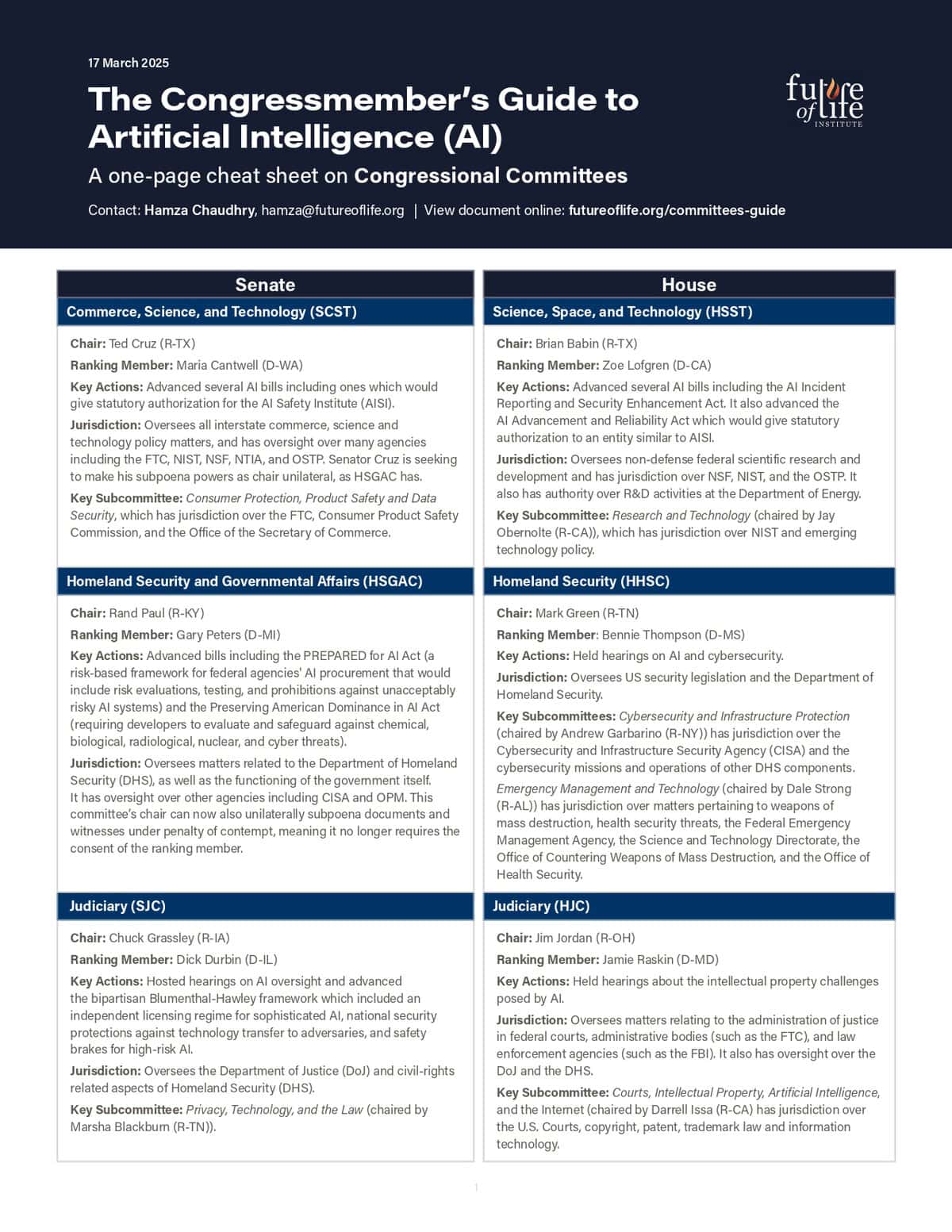
Staffer’s Guide to AI Policy: Congressional Committees and Relevant Legislation
March 2025
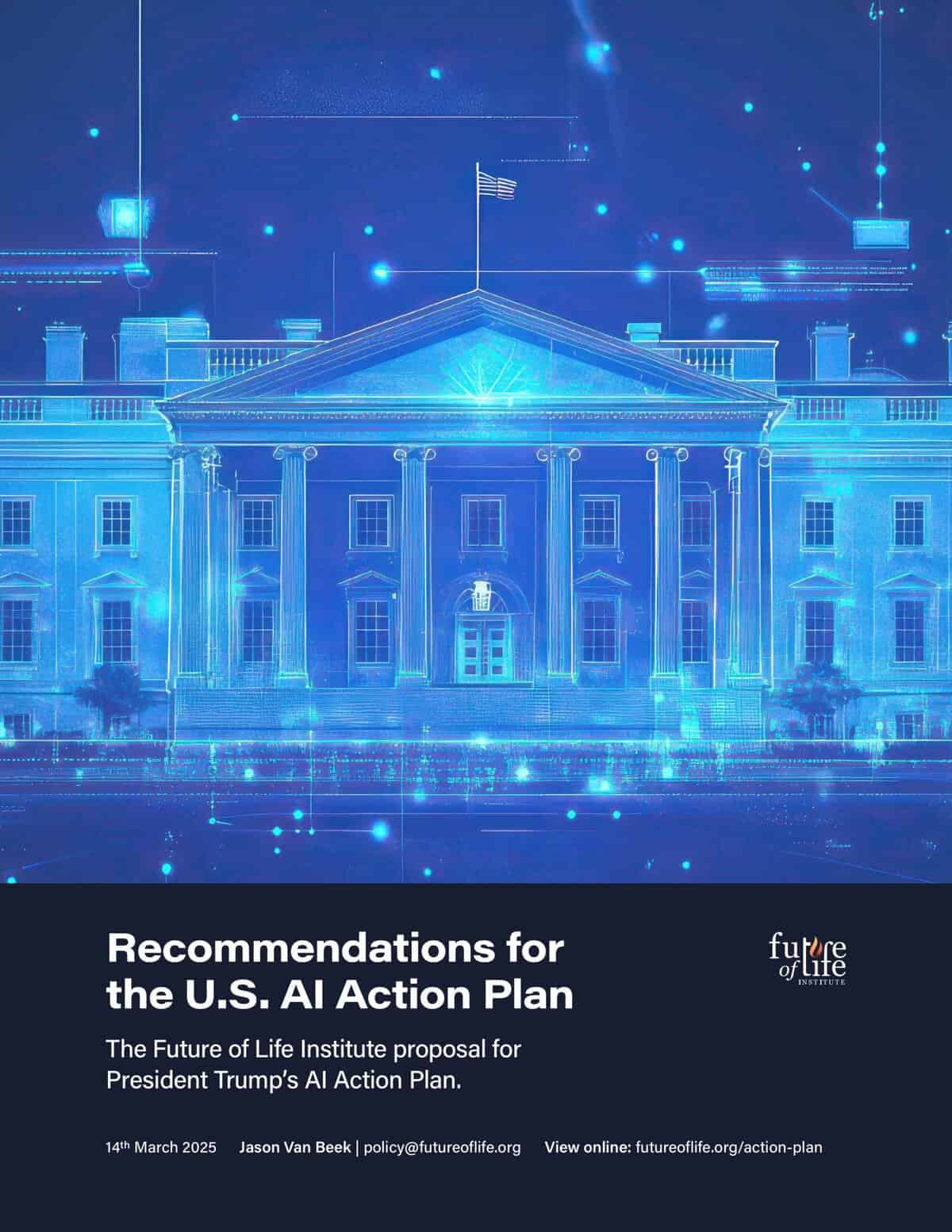
Recommendations for the U.S. AI Action Plan
March 2025
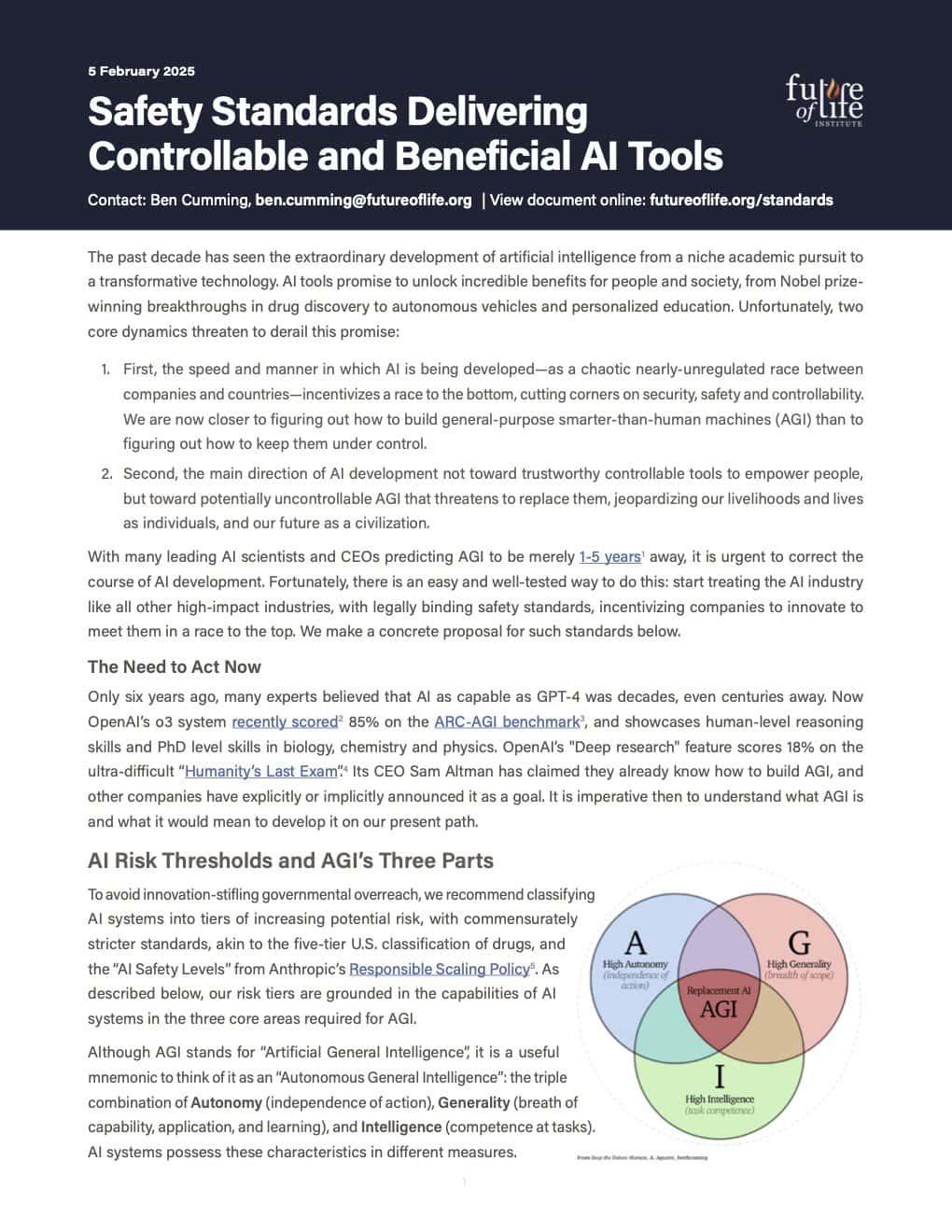
Safety Standards Delivering Controllable and Beneficial AI Tools
February 2025
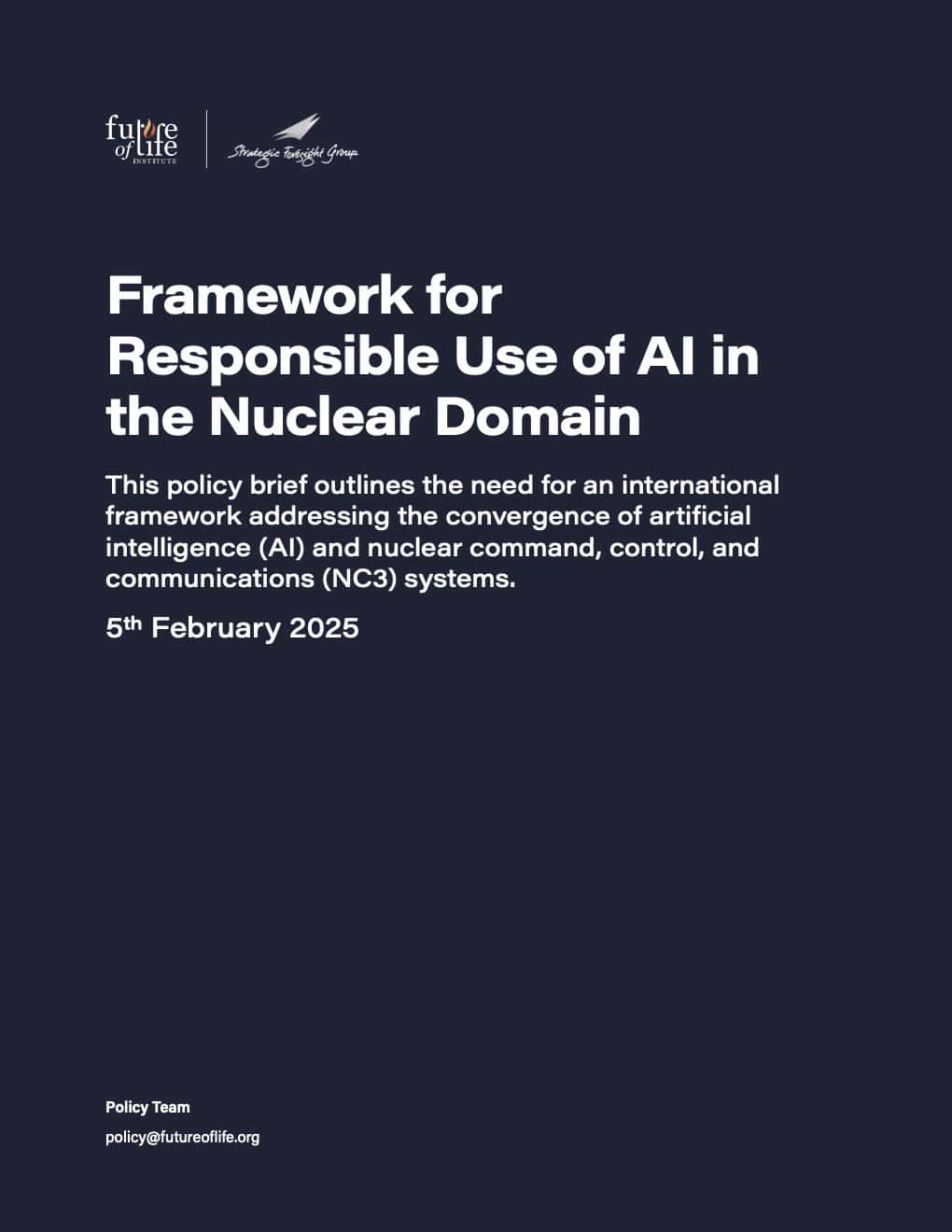
Framework for Responsible Use of AI in the Nuclear Domain
February 2025
View all papers
Future of Life Institute Podcast
The most recent podcasts we have broadcast:
View all episodes

